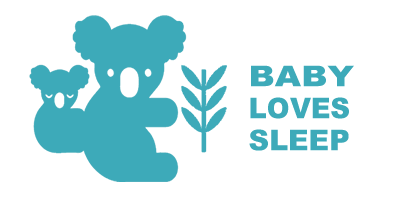Your Cart is Empty
$8 FLAT RATE SHIPPING USA | PAY IN 4 WITH SEZZLE
$8 FLAT RATE SHIPPING USA | PAY IN 4 WITH SEZZLE

Baby Sleep Milestones: 6 Months
June 05, 2023 2 min read
Oh my your baby is now 6 months! The memory of going into labour and contractions now seem a blur as it gets replaced with the joy of every new milestone your baby presents to you.
Six months is an exciting time. Your baby is growing and developing very quickly. Their coordination is getting better, because the left side of their brain has started communicating with the right side. You and your baby are starting to understand each other and they won't hesitate to let you know when they are happy or sad and they will start to respond to words.
And what about in the sleep department?
At around 6 months old, babies typically go through significant changes in their sleep patterns.
While every baby is unique, here are some common sleep patterns and recommendations for 6-month-old babies:
1. Nighttime sleep
Many babies can sleep for longer stretches at night without waking up. They may sleep for 10-12 hours, with a few wake-ups for feeding or nappy changes.
2. Naps
At 6 months, babies usually take 2-3 naps during the day, with each nap lasting around 1-2 hours. Naps may still vary in length and frequency, depending on the individual baby.
3. Bedtime routine
Establishing a consistent bedtime routine can help signal to your baby that it's time to sleep. This routine can include activities like a warm bath, gentle massage, reading a book, or singing a lullaby.
4. Sleep environment
Ensure that your baby's sleep environment is safe and comfortable. A firm cot mattress with a fitted sheet, a moderate room temperature, and a dark and quiet room can contribute to better sleep. If you need to darken your baby's room, you can use the Sleepy Sundays Blackout for Windows.
5. Sleepwear
Choose sleep clothing that is made of natural fibres such as cotton, organic cotton or bamboo cotton as these are naturally breathable and will reduce the chances of babies overheating. Choose an appropriate TOG rated baby sleeping bag to keep your baby warm and secure while they sleep.
Our Sleepy Hugs Original or Hands In & Out transitional sleep sacks are designed to give your baby the security they need to keep them sleeping longer throughout their developmental journey.
6. Sleep associations
Around 6 months, some babies may start developing sleep associations, such as needing to be rocked or nursed to sleep. It's beneficial to encourage babies to learn to fall asleep independently by placing them drowsy but awake in their cots.
7. Sleep coaching
If your baby is struggling with sleep or has trouble settling, you might consider sleep coaching methods suitable for their age. It's essential to research different methods and choose one that aligns with your parenting style and comfort.
Remember that every baby is different, and individual sleep patterns may vary. It's crucial to be patient and flexible as your baby continues to grow and develop.
If you have concerns about your baby's sleep habits, it's recommended to consult with your pediatrician or a sleep specialist for guidance and support.
Subscribe
Sign up to get the latest on sales, new releases and more …
